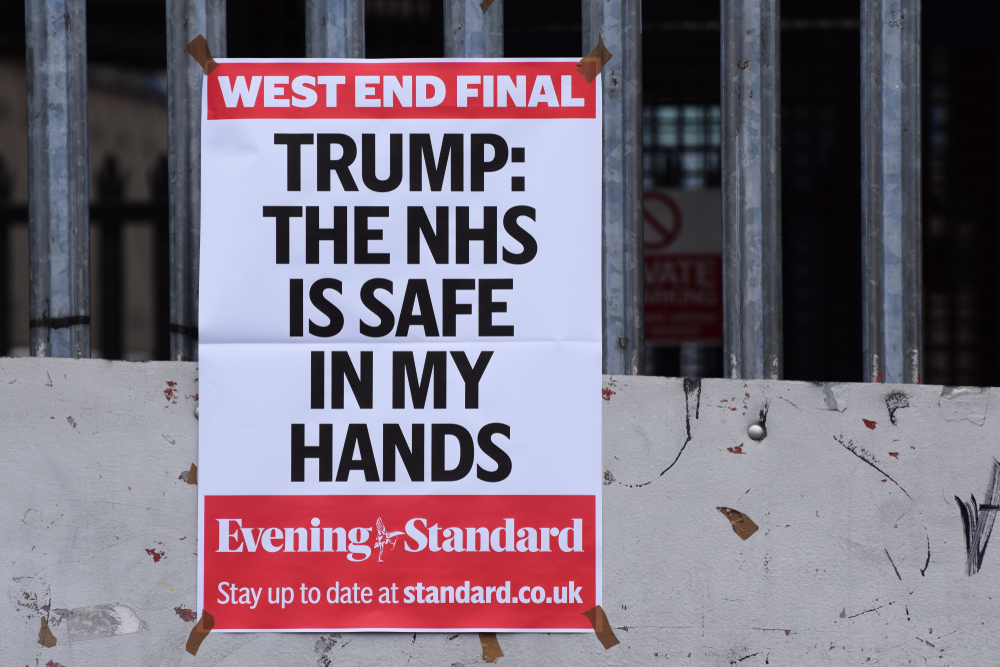Since Donald Trump first let slip that he wanted the NHS to be “on the table” in any trade deal with the US after Brexit, debate has continued on exactly what might be up for grabs as a result.
The belated and repeated statements from PM Johnson and Trade Secretary Liz Truss that there was no question of putting the NHS “up for sale” lack conviction, not least because flogging off the whole NHS was always the least likely outcome: there are so many parts of the NHS that US corporations seeking profits would find unattractive.
It’s also the case that especially since the Health & Social Care Act of 2012, US corporations have been free to bid for contracts to run NHS clinical and support services. So far not many of them have done so: the greatest inroads have been im mental health.
But as a recent article by Kate Ling of the NHS Confederation points out, even operating on World Trade Organisation (WTO) terms after leaving the EU without a deal won’t force commissioners to invite bids from overseas companies to provide NHS services:
“It will be for the Government of the day to choose, when negotiating, what kind of services foreign providers can bid to supply.”
This will not fill many campaigners with confidence. Of course the driving force so far in privatisation of NHS services has been the British government, whether that was New Labour from 2000, David Cameron supported by Lib Dems from 2010, or Tory governments since 2015.
However the US is most likely to focus not on taking over services but on other highly lucrative areas, notably the pricing of medicines – seeking to dilute or remove the agreement with the pharma industry under which the NHS caps its expenditure on branded medicines, paying far less than in the US.
The US pharma giants would also like to strengthen intellectual property rights for companies who hold patents and data about the drugs they market, which could delay patient access to cheaper generic drugs.
There is also the threat they might push for access to the British NHS’s unique database of 55 million patient records, which have been estimated to be worth £5 billion per year to private companies. Consultancy.uk has highlighted a recent paper from professional services giant EY which claims that the NHS could tap into a vital source of funding by opening up its patient records to private entities.
The NHS Confed also says it is concerned to prevent any further inroads into the NHS. It urges government action (changes in the law) that would “Ideally, exclude publicly funded healthcare services completely from the scope of a future free trade agreement (FTA).
“Or, if they are within scope, explicitly exempt them from commitments that would, for example, oblige the NHS to allow the trading partner’s companies to bid for NHS business….”
However the Confed says it is happy to allow commissioners to choose to put services out to tender.
In other words even if we can keep the Americans at bay, the real challenge in pressing to keep our NHS intact is to stop our own home grown CCGs and Trusts choosing to put more NHS services out to tender.
Dear Reader,
If you like our content please support our campaigning journalism to protect health care for all.
Our goal is to inform people, hold our politicians to account and help to build change through evidence based ideas.
Everyone should have access to comprehensive healthcare, but our NHS needs support. You can help us to continue to counter bad policy, battle neglect of the NHS and correct dangerous mis-infomation.
Supporters of the NHS are crucial in sustaining our health service and with your help we will be able to engage more people in securing its future.
Please donate to help support our campaigning NHS research and journalism.


